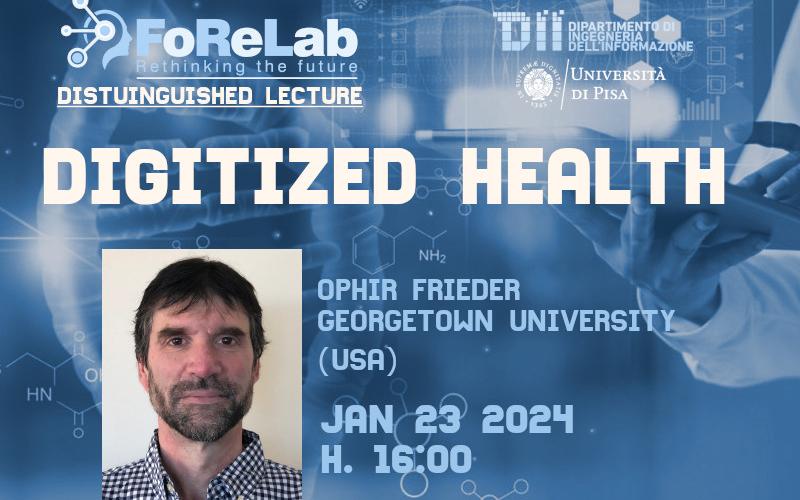Innovation for Industry 4.0 Login
FORELAB Distinguished Lecture: Digitized Health

23 Gennaio 2024, Aula Magna Pacinotti, ore 16
Ophir Frieder, Georgetown University (USA)
Abstract
Computing in general, and the AI revolution specifically, continues to change the landscape of nearly all domains, medicine included. For instance, patient interactions can be simplified by personalized bots, potential mental health concerns can be detected early through opt-in monitoring agents, and treatment efficacy can be predicted via data mining applications. These are just some examples where computing is reshaping medical practice. Specifically, we illustrate a patient-centered, digital front door for multiple patient interaction paradigms. We then highlight a patented, licensed, and proprietary intelligent agent that identifies behavioral deviancy, an early warning for potential mental health concerns. We continue with another patented, licensed, and proprietary intelligent agent technology, but this time, to screen for covid-19 via the use of surrogates. Finally, we conclude by introducing a patented and licensed graph-kernel based approach for predictive prescription efficacy.
Bio:
Ophir Frieder focuses on scalable information processing systems with particular emphasis on health informatics. An Inductee of the Florida Inventors Hall of Fame and a Member of both Academia Europaea and the European Academy of Sciences and Arts, he is a Fellow of the AAAS, ACM, AIMBE, IEEE, and NAI, and an Inaugural Member of the ACM SIGIR Academy. He was awarded the Association for Information Science and Technology (ASIS&T) Research in Information Science Award for medical informatics and the IEEE Edward J. McCluskey Technical Achievement Award for scalable information systems. He is a member of both the computer science faculty at Georgetown University and the biostatistics, bioinformatics and biomathematics faculty at the Georgetown University Medical Center. He is also Chief Scientific Officer at Invaryant, Inc.
